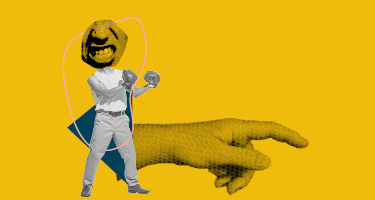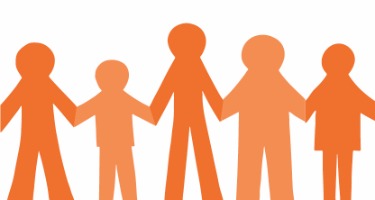“It were not best that we should all think alike; it is difference of opinion that makes horse-races.” Mark Twain, Pudd’nhead Wilson [1894]
Mark Twain, aka Samuel Clemons, seldom is mentioned in articles about getting better results in mediation. But he is well-recognized as a sage observer about how we get along with one another.
Litigation often happens when we do not get along well with others. How we think about that litigated dispute, and the possible solutions to a bad situation, is the concern of the mediator. Mediation offers litigants a way to avoid the expense, unpredictability, and general gut-wrenching of facing a judge or jury armed only with the facts and law lawyers think they can sell to their audience. Any lawyer who has tried a few cases knows that the judge or jury seldom is as observant or predictable as the lawyer expected (or told her client). We often are surprised by an outcome that does not meet our very rational and intelligent predictions. In fact, after getting the verdict about fifty percent of litigants are very surprised and disappointed. This article discusses the nuts and bolts of a successful mediation from the viewpoint of an old mediator, and will provide some of his, and Mark Twain’s, insights into the process of dispute resolution and how to get along with others.
While expensive, the irritation of litigation costs often is far exceeded by the emotional toll and distraction of extended fighting. Once a lawsuit is filed, any previous beneficial relationship with the other side may never achieve a full recovery. And the longer the case proceeds, the more the financial and emotional investments of the parties and their counsel compel them to seek a final “victory” to justify their investment. Those emotional costs are even more wringing when the opponent is an acquaintance, neighbor, business associate, or former spouse. Business litigation also diverts employees and management from more productive pursuits while mired in discussion of past problems rather than the more exciting prospect of future business success.
I. Why Mediate?
“The Secret of getting ahead is getting started.”
The wisdom of a mediated settlement has gained such wide recognition that trials now are becoming rare, as are trial lawyers who have tried more than a handful of cases to a jury. A good settlement makes sense and allows the parties to resolve their differences without handing the outcome to twelve people selected for their inability to avoid jury duty, or having any subject matter experience that would be useful in determining the dispute. So, the following are observations about what elements contribute to a successful mediation, and how the mediator can create the environment for settlement.
II. A Trained Mediator
“Training is everything…cauliflower is nothing but cabbage with a college education.”
First, the mediator needs training to be effective. Why training? Isn’t being a litigation lawyer with subject matter expertise enough? NO. Being a good mediator takes skills that attorneys do not learn in law school, or develop in a litigation practice.[2] For example, it is critical for the mediator to be a careful listener. Litigation attorneys are good at thinking on their feet, but often are bad listeners (your significant other may confirm this observation). They typically are busy formulating their responses to an opponent’s court room arguments before the opposing counsel finishes her sentence. Many states require mediators to complete significant coursework to become a certified mediator. From your author’s experience, every hour of the coursework is important for learning to view a matter neutrally, to suspend judgment, to become a better listener, and to gain that most essential component of successful mediation: patience. In other words, mediation training deprograms our law school training.
III. Are You Listening?
“Wisdom is the reward you get for…listening when you would rather have talked.”
A mediator must listen not only to what is being said by the parties, but also to what is not being said. The mediator must identify a person’s real, but often unstated, concerns. That is, what really is driving the plaintiff’s litigation or the defendant’s defenses? A demand for money, typical in civil litigation, sometimes is really a plea for acknowledgement that the plaintiff was hurt, or was “right”. Plaintiff often is looking for sympathy, validation, or an apology. An apology can be a powerful contributor to the settlement process. Even if the defendant does not admit any responsibility for the plaintiff’s complaints, an acknowledgement of the plaintiff’s problems often is an important step to resolving the lawsuit. Likewise, a recalcitrant defendant may feel betrayed by the plaintiff, and have significant emotional, as well as financial, concerns that must be addressed before a settlement is possible.
A mediator also must suspend judgment. That is, the mediator truly must be neutral. This is difficult for everyone, but especially for an experienced litigation lawyer who takes sides in every matter that crosses his desk. The litigation attorney weighs every factor to determine how it affects the client’s case. However, a litigation attorney also may unconsciously filter information to determine if it fits within her trial theme. If it does not, the attorney diminishes the weight of, or even fails to hear, contrary evidence. In a neutral mediation, the mediator is not there to judge who is right or wrong. Doing so colors the mediator’s view of the case, and may subconsciously affect the way he or she helps to navigate a resolution. Deciding who is “right” creates a conflict for the mediator who is trying to find a prescription to cure the malady of litigation. A good mediator helps the parties determine a successful remedy for the damages alleged in the law suit, including any unstated issues that really are motivating the dispute. Moreover, if a party thinks the mediator is biased, and adversely judging that party, the mediation is doomed to failure.
IV. Patience is a Virtue
“It’s good sportsmanship to not pick up lost golf balls while they are still rolling.”
Perhaps the most critical attribute of an effective mediator is patience. Neutral mediations follow a pattern: they do not settle quickly. Each side believes they are “right” and urges the mediator to get the other side to compromise to achieve a fair settlement. In almost every lawsuit, however, each side has positive and negative aspects to their case. The mediator needs patience to get the parties to acknowledge the “bad” parts of their case when they only want to focus on the “good” parts. Highlighting the bad parts is not judgment by the mediator, but rather a Socratic method of getting the party and its counsel to honestly calculate the possible effects of the other side’s arsenal.
Another reason for patience by the mediator, and especially by the parties, is because compromise is painful, and we all try to avoid pain. It takes time for a party to accept less, or pay more, than they “should”. The mediator needs to understand that compromise is difficult for people, and cannot be hurried. Small steps are sometimes frustrating for the parties, but mediators who push for big steps can end up pushing parties right out the door without a settlement.
V. Let it Go
“When angry, count to four; when very angry, swear.”
A mediator substantially increases the chances of settlement if she creates the environment for critical, cathartic stages to happen. Your author begins his sessions by going around the table and asking every participant if they are there to settle the case. Making a public pronouncement of that desire can change the focus of participants from getting free discovery, to looking for common ground. Next, plaintiff needs its day in court. For many plaintiffs, the mediation is their first chance to explain the case to a neutral party. This can serve as the plaintiff’s forum to get it off his chest. Plaintiffs may be encouraged to make a statement at the initial joint session of all parties. This cathartic moment can be the first stage in getting the plaintiff to resolution. Without that feeling of being heard and understood, the plaintiff is less likely to settle the case. For the defendant, this also may be the first occasion to assess what impact the plaintiff might make on the trier of fact. This is particularly important where a claims adjuster is attending the mediation.
Third, plaintiff attorney should make an opening statement. This presents a stage for plaintiff counsel to demonstrate to her client, and to the opposing counsel, that a competent advocate is handling the case. It also lets her client and defense counsel know that plaintiff attorney understands her case completely, has analyzed the issues and legal theories, and is prepared to proceed to a successful trial. Likewise, defense counsel needs the opportunity of an opening statement to accomplish these same goals.
The final necessary catharsis is for defendant to participate in the mediation, and demonstrate concern about the case. Defendant (and counsel) must actually listen to what is being said by the other side. Whether it is the named defendant, or the insurance company claims adjuster, a decision maker needs to be part of the process. The subtleties of changing settlement dynamics must be experienced at the mediation. Having the decision maker on telephone standby to get only second hand reports of those dynamics will significantly reduce the chance of settlement.
VI. Have Faith
“Optimist: person who travels on nothing from nowhere to happiness.”
The mediator must project a positive demeanor. When it looks like the parties have gone as far as they are prepared to go, and settlement is still just a remote possibility, the mediator must remain positive and instill confidence in both sides that a solution is available. This goes beyond merely having patience, and requires an optimism that is not the stock and trade of litigation lawyers. The mediator should have faith in the mediation process because he knows that given enough time and motivated parties, the mediation technology produces settlements.
VII. Do it Yourself
“A man cannot be comfortable without his own approval.”
These comments are addressed to neutral mediation. There are other mediation models, including the one where a retired judge or mean old trial lawyer tells each side that their case is a miserable failure, and only a fool would take it to trial. This is called an evaluative mediation. While that method is sometimes successful, a neutral mediation has the advantage of the parties choosing the terms of settlement. There is far less chance of a settling party’s remorse undoing a settlement the day after a neutral mediation, than after having second thoughts about a settlement impressed upon it by an authority figure. Besides, what attorney wants to hear that he cannot properly evaluate a case?
There you have it: A technology to cure the common lawsuit. The settlement will be on terms each side agrees upon. How many parties handed a verdict can make that same claim?
---------------------------
[1] Republished with permission from The Transportation Lawyer magazine.
[2] In fact, law school training changes the personality and perception of lawyers from what they enjoyed on entering law school. We become more analytically abstract, and diminish our innate ability to deal with emotional and interpersonal contact. Law school trains us to be less flexible, bad at active listening, and to lose our ability to recognize the importance of mutual respect, equality and security: i.e., the soft skills. The Lawyer’s Philosophical Map, by Chris Guthrie, 6 Harvard Negotiation Law Review 145 (2001)
---------------------------
Gordon McAuley is of counsel to Williams & Gumbiner LLP in San Francisco and has been a transportation lawyer for 36 years. An author of more than 50 published transportation articles, he is also the past-president of the Transportation Lawyers Association and former chair of its freight claims committee. Gordon served as a mediator in more than 110 cases involving transportation, personal injury, real estate, and commercial disputes, and now specializes as a transportation mediator traveling throughout the nation to assist parties in settling their disputes.




























